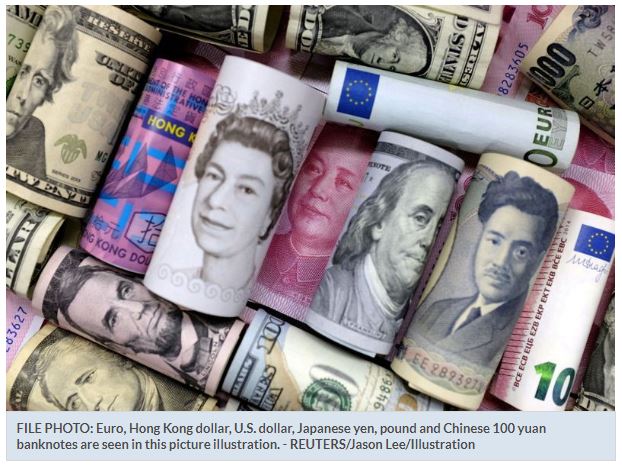Crisis level risks loom in Asia as major currencies crack
SINGAPORE: Asian markets risk a reprise of crisis-level stress as two of the region’s most important currencies crumble under the onslaught of relentless dollar strength.
The yuan and yen are both tumbling due to the growing disparity between an uber-hawkish Federal Reserve and dovish policy makers in China and Japan.
While other Asian nations are digging deep into foreign-exchange reserves to mitigate the dollar’s damage, the yuan and yen’s slump is making things worse for everyone, threatening the region’s mantle as a preferred destination for risk investors.
“The yuan and yen are big anchors and their weakness risks destabilising currencies to trade and investments in Asia,” said Vishnu Varathan, head of economics and strategy at Mizuho Bank Ltd in Singapore, using another name for China’s currency.
“We’re already heading toward global financial crisis levels of stress in some aspects, then the next step would be the Asian financial crisis if losses deepen.”
The gravitational pull of China and Japan are evident in the sheer influence of their economies and trade relationships.
China has been the largest trading partner of South-East Asian nations for 13 straight years, according to a Chinese government statement. Japan, the world’s third-biggest economy, is a major exporter of capital and credit.
The tumble in the currencies of the region’s two largest economies may swell into a full-fledged crisis if it spooks overseas funds into pulling money out of Asia as a whole, leading to massive capital flight.
Alternatively, the declines may set off a vicious cycle of competitive devaluations and a slide in demand and consumer confidence.
“Currency risk is a bigger threat for Asian nations than interest rates,” said Taimur Baig, chief economist at DBS Group Ltd in Singapore.
“At the end of the day, all of Asia are exporters and we could see a reprise of 1997 or 1998 without the massive collateral damage.”
Investors have already been busy pulling money from the region.
Global funds have taken about US$44bil (RM201.4bil) out from Taiwan’s shares this year, US$20bil (RM91.5bil) from India’s equities, and US$13.7bil (RM62.7bil) from South Korean stocks, according to data compiled by Bloomberg.
Indonesia’s bond market has suffered US$8.2bil (RM37.5bil) in outflows. Beijing and Tokyo’s heft is even more pronounced in financial markets. — Bloomberg


 Thailand
Thailand




